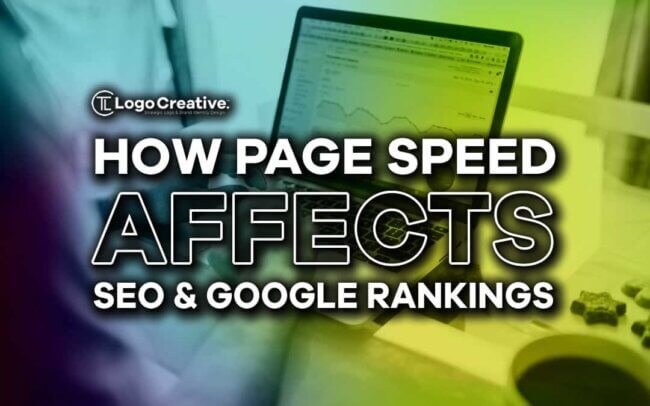While most people are familiar with the importance of SEO, optimizing website performance is becoming increasingly important in determining a website’s online visibility. In this article we discuss How Page Speed Affects SEO and Google Rankings.
With advances in technology and the prevalence of high-speed internet, it has become essential for all websites to perform quickly and consistently if they want to rank well on search engines like Google.
In this blog post, we will explore how page speed affects SEO and demonstrate why focusing on improving it can make a big difference to your website ranking.
Keep reading as we explain how page speed works, what techniques you should use when optimizing for SEO, and how increasing your site’s loading time could even help bring more organic traffic.
Table of Contents
Impact of Page Speed on SEO
Page speed has a direct and measurable effect on SEO, as it is one of the critical components Google looks at when deciding how to rank websites.
Search engine algorithms are designed to deliver relevant content as quickly as possible, so having a slow-loading website could be detrimental to your rankings. It affects user experience directly, leading to reduced page views and bounce rates.
Google considers page speed when assessing your website for ranking, as a slow-loading site does not provide an optimal search experience for users.
Sites that load faster are more likely to be ranked higher than those with slower loading times. Additionally, if you have an eCommerce website, research suggests that every one-second delay in page loading time can decrease the conversion rate.
Google also uses page speed as a measure of website quality, so if your site is performing poorly, it can reduce the visibility of your content.
Google’s algorithms are constantly being updated and optimized to ensure they deliver the highest-quality search results.
This means that if your website is slow to load or has other performance issues, it could be overlooked in favor of more optimized websites.
Optimizing for Page Speed and SEO
You can take several steps to optimize your website’s page speed and improve its overall performance.
1. Have an Efficient Codebase
Make sure to use lightweight code and design patterns, as these can reduce the time your website takes to load. The fewer resources it needs to render a page, the faster it will be.
Greenville web design & development can help you create a highly optimized website. Professional web design and development make it possible to create a fast-loading website without sacrificing functionality.
2. Minimize HTTP Requests
HTTP requests are your browser’s calls when loading a page, so reducing them can significantly speed up performance time. You can achieve this by combining files, caching data, and using content delivery networks (CDNs).
A scalable website solution is another way to reduce HTTP requests, as it ensures that your website can handle many visitors without any latency or performance issues.
3. Leverage Browser Caching
Browser caching allows a browser to store pages faster when revisiting the website. This helps improve page speed and reduce server load, which is especially beneficial if you have a high-traffic website.
If you don’t want to or cannot leverage browser caching, you can use a caching plugin on your website to speed things up.
4. Compress Images
Using images is excellent for making your content more visually appealing. However, large image files can slow down page loading times.
Compress your images for SEO and performance by using an image optimization tool. This will reduce the file size without compromising image quality, resulting in faster page loading times.
5. Use a CDN
Content delivery networks are distributed networks of servers that store cached versions of your content to deliver it to users from the closest server possible.
This reduces loading times as the content is served from a location closer to the user and also helps to reduce bandwidth usage.
Page speed has a significant influence on SEO and user experience, so it’s important to optimize your website for performance. Following the tips outlined above can help you improve page speed and boost your SEO rankings.
A professional web designer can also help you create a high-performance website that loads quickly and is optimized for SEO.
Join The Logo Community
We hope this has helped in understanding How Page Speed Affects SEO and Google Rankings. If you would like more personal tips, advice, insights, and access to our community threads and other goodies, join me in our community.
You can comment directly on the posts and have a discussion with Andrew, the Founder of The Logo Creative.
*TIP – We recommend Skillshare to learn online. There are tons of classes for everything including graphic design, web design, marketing, branding and business-related courses. Get a free trial with our link and you won’t regret it Trust us!


